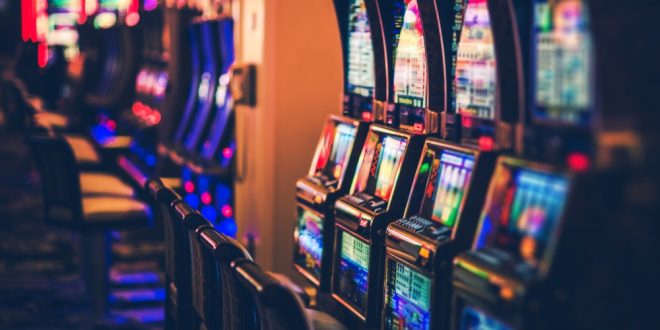A recent psychology study published by Nottingham Trent University (NTU) has called for a review into gambling legislation related to lower stakes and fast-speed gambling games.
This story featured in today’s SBC News 90. To view the latest round-up, watch today’s edition here.
The study, entitled ‘The Relationship Between Gambling Event Frequency, Motor Response Inhibition, Arousal, and Dissociative Experience’, was led by NTU’s School of Social Sciences senior lecturer in Psychology, Dr Andrew Harris.
The key finding of the study revealed that gambling at high speed reduces self-control among players, with the speed of play being a factor in rates of problem gambling.
As part of the research, 50 non-problem gamblers were ‘recruited from amusement arcades and sports teams in the Lincolnshire region of the UK’. The study selected this group as ‘they were identified as areas most likely to contain a high density of gamblers’.
The participants gambled with real money using a simulated slot machine across five speeds of play conditions.
Participants were asked to withhold responses when a specific colour cue was shown. During the faster speeds, participants were unable to respond to colour cues, suggesting that players were much more impulsive during faster rates of play.
Harris stated: “Previous research shows a consistent finding that games with faster speeds are preferred by problem gamblers and are associated with more negative gambling outcomes, such as difficulty quitting the game and increased monetary loss.
“The results here are of particular importance, as they show that when playing faster forms of gambling, self-control is impaired relative to slower speed games, even among non-problem gamblers.
“If an opportunity is not afforded to a gambler to pause and take stock between gambling events, the likelihood is that they will respond adaptively to punishment decreases (e.g., financial loss).
“Consequently, less opportunity for reflection is afforded by high event frequency games and as such are increasingly likely to lead to poorly adapted behaviour leading to problem gambling in some individuals.”
When asked to measure their own control levels, players perceived themselves as in control of their actions throughout the trial – in contradiction to the results from the study.
Taking the findings into consideration, Harris pointed out that the results have implications for both gambling regulation and player protection.
Harris added: “Recent gambling legislation changes have seen caps in the maximum stake size allowed on fixed odds betting terminals as a harm-minimisation measure, but yet to be considered is the contribution of lower stakes but faster speed gambling games, such as slot machines, and the contribution this has towards gambling-related harm
“Any reduction in speed would need to be balanced with the impact this could have on enjoyment, as this could result in compensatory gambling behaviours, where gamblers might play more gambling lines, bet larger amounts, and play for longer periods of time on slot machines to compensate for the reduced speed of play.
“However, there are a number of useful measures which could be introduced, such as making clocks and monetary spend displays more noticeable to ensure they are regularly processed and attended to by gamblers.”







